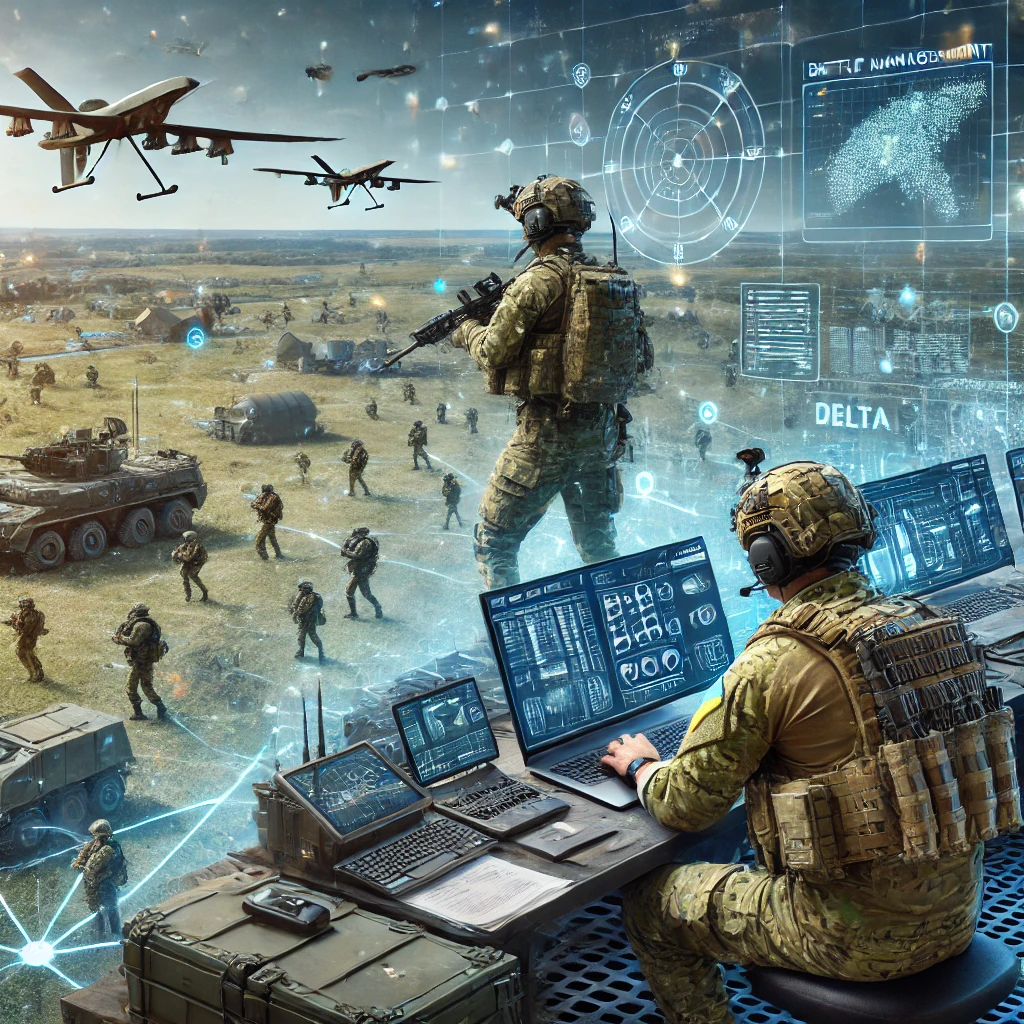NATO’s Support in the Development of Battle Management Systems Similar to Delta
Modern military conflicts demand highly effective battle management systems capable of integrating real-time data and coordinating troop actions. One such system is the Ukrainian Delta battle management system, which has already proven its effectiveness in real combat conditions. Given the success of Delta, NATO countries are actively supporting the development of similar systems, which could significantly shift the balance of power on the battlefield.
The Importance of Battle Management Systems in Modern Warfare
A battle management system is a high-tech platform that integrates intelligence data from various sources, such as drones, satellites, radars, and electronic warfare systems. This data is analyzed in real time and transmitted to command centers, enabling quick and accurate decision-making on the battlefield.
Modern conflicts require speed and precision. In this context, systems like Delta provide much higher operational efficiency, reducing response time to threats and improving coordination between different branches of the armed forces. These capabilities have drawn NATO’s attention to supporting such technologies.
Strategic Importance for NATO Countries
NATO countries understand that effective battle management systems, like Delta, are essential for modern defense operations. NATO aims to create a global network of combat systems that unite the military efforts of all allies in a joint response to potential threats. Therefore, supporting Ukraine and other nations in developing similar technologies is viewed as a key element of the Alliance’s global strategy.
Battle management systems also help optimize resource usage and minimize personnel losses, which is especially relevant in the face of modern high-precision weapons and drone warfare.
Forms of NATO Support
NATO’s support for developing and enhancing battle management systems similar to Delta manifests in several ways:
- Funding and technical assistance:
NATO countries provide Ukraine and other partners with financial aid for developing and upgrading battle management systems. These funds are used to purchase equipment, improve software, and integrate it with other military systems. - Sharing information and technology:
NATO allies actively share technologies and knowledge, enabling Ukrainian specialists and engineers to implement advanced solutions into their systems. This includes cyber protection, data security, and integrating intelligence from various sources. - Training and exercises:
NATO organizes joint training exercises where Ukrainian military personnel learn to operate high-tech battle management systems. This not only improves the technical proficiency of troops but also enhances cooperation with NATO forces, which is critical for joint operations. - Coordination in the development of new systems:
A key area of support is the joint development and coordination of new battle management systems. NATO specialists and allied countries work with Ukrainian developers to modernize Delta and create similar systems capable of integrating into the Alliance’s infrastructure.
Examples of Cooperation
One successful cooperation project is the AI-based Tactical Battle Management system, developed with NATO countries. This project integrates artificial intelligence, automating parts of the battle management process. This significantly accelerates decision-making and improves the accuracy of predicting enemy actions.
Additionally, some NATO countries provide Ukraine with access to their satellite and other surveillance systems, enhancing the performance of Delta and similar systems. This information sharing enables the Ukrainian military to receive more accurate and timely data for planning operations.
Impact on the Future of Warfare
The joint efforts of NATO and Ukraine to develop battle management systems similar to Delta have far-reaching implications. These technologies will not only significantly increase operational effectiveness but also change the concept of warfare itself. The high level of technological integration, the ability to instantly analyze data, and the precise management of troops in real time are becoming crucial factors in determining success in modern conflicts.
Furthermore, such systems will help NATO and its allies more effectively respond to hybrid threats, where warfare is conducted not only in the physical domain but also in cyberspace, where coordination and information security are key.

Conclusion
The Delta battle management system and its analogs, being developed with NATO’s support, represent the future of military technology. They enable greatly enhanced operational efficiency, improved coordination of forces, and minimized losses. NATO’s support in the development and refinement of these systems helps Ukraine and other partners adapt to the challenges of modern warfare while preparing the Alliance for potential future conflicts.


Залишити відповідь